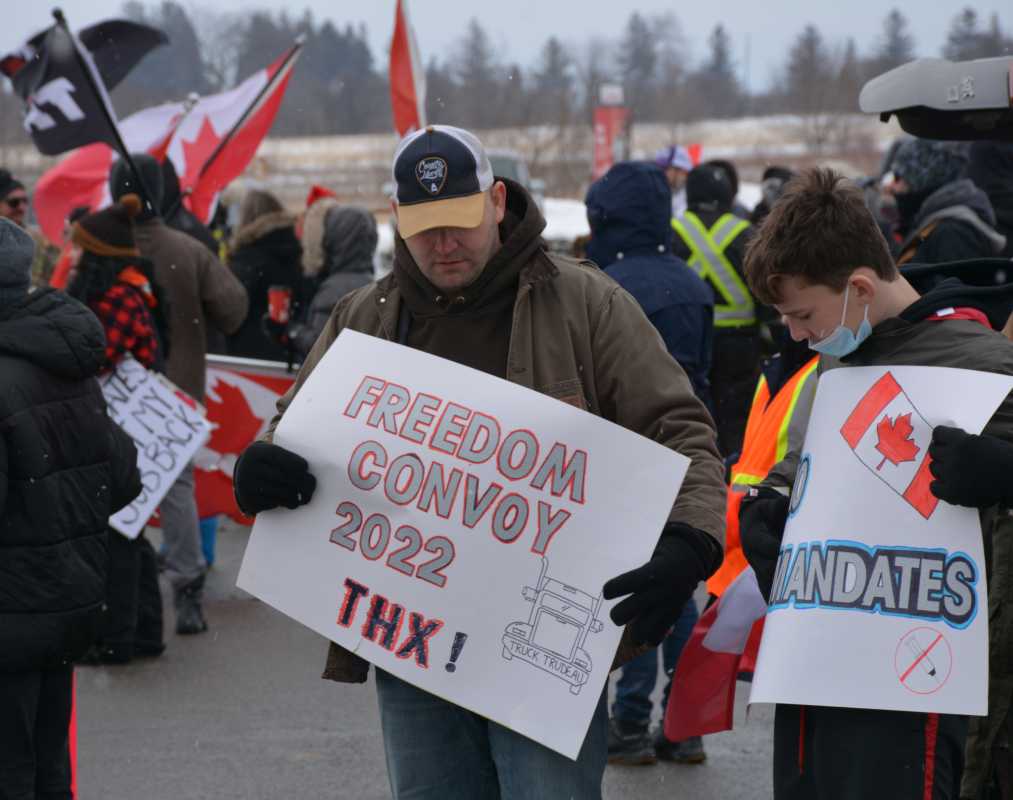Politics
Federal Government to Appeal Ruling on Use of Emergencies Act at Freedom Convoy Protests in Ottawa

The federal government is planning to appeal the ruling by the Federal Court regarding its use of the Emergencies Act to shut down the Freedom Convoy protests in Ottawa two years ago, stating that the use of the Act was ‘not justified.’ The Canadian Constitution Foundation and the Canadian Civil Liberties Association, the two groups who brought the case to the Federal Court, shared the news of the ruling on social media platform Twitter.
The protests, opposing COVID-19 vaccine mandates, caused gridlock in downtown Ottawa for three weeks and blocked some Canada-U.S. border crossings in early 2022.
On February 14, 2022, the federal government invoked the Emergencies Act for the first time, arguing that the national security risks posed by the protests justified its use. This allowed the government to implement temporary powers such as restricting protesters’ access to funds, granting jurisdiction to the RCMP to enforce local laws, designating critical infrastructure and services, and imposing fines and imprisonment on those who refused to leave the protest zone.
Federal Court Justice Richard Mosley stated in his ruling that the decision to issue the Proclamation under the Emergencies Act lacked transparency, justification, and intelligibility. He also noted that the legal constraints on the discretion of the Governor in Council (GIC) to declare a public order emergency were not satisfied. Mosley emphasized that there was no national emergency justifying the use of the Act and that the decision was therefore unreasonable and beyond the powers of the law. He clarified that the case focused on how the Emergencies Act was applied in this instance, rather than its constitutionality.
Deputy Prime Minister Chrystia Freeland, speaking at a press conference during a cabinet retreat in Montreal, expressed the government’s intention to appeal the decision. She reminded Canadians of the seriousness of the situation and the threats to public safety and the national economy that led to the decision to invoke the Act, stating that it was a hard but necessary choice. She maintained her conviction that it was the right course of action.
A public inquiry led by Commissioner Paul Rouleau in the previous year had already found that Prime Minister Justin Trudeau met the threshold to invoke the Emergencies Act. Conservative Leader Pierre Poilievre criticized Trudeau’s use of the Act, accusing him of dividing people and causing the crisis. Poilievre pledged to unite the country for freedom if elected prime minister. NDP Leader Jagmeet Singh, who initially supported the government’s use of the Act, expressed his party’s reluctance and placed the blame on Trudeau’s leadership and the failure of other levels of government to address the crisis adequately. Singh acknowledged the upcoming appeal of the ruling and stated they would closely follow the outcome.
Professor Michael Kempa, an associate professor of criminology at the University of Ottawa, highlighted the significance of the Federal Court’s decision, stating that it sets a legal precedent and makes the government vulnerable. He noted the similarities between Mosley’s assessment and Rouleau’s, specifically the failure of certain municipalities and law enforcement agencies to adequately manage the protests. However, he pointed out that while Rouleau justified the federal government’s intervention using the Emergencies Act due to the failure of local authorities, the Federal Court ruled that the existing powers should have been utilized instead of invoking the Act.
Sources have reported these developments, including CTV News‘ Annie Bergeron-Oliver and CTVNews.ca’s Senior Digital Parliamentary Reporter Rachel Aiello.












